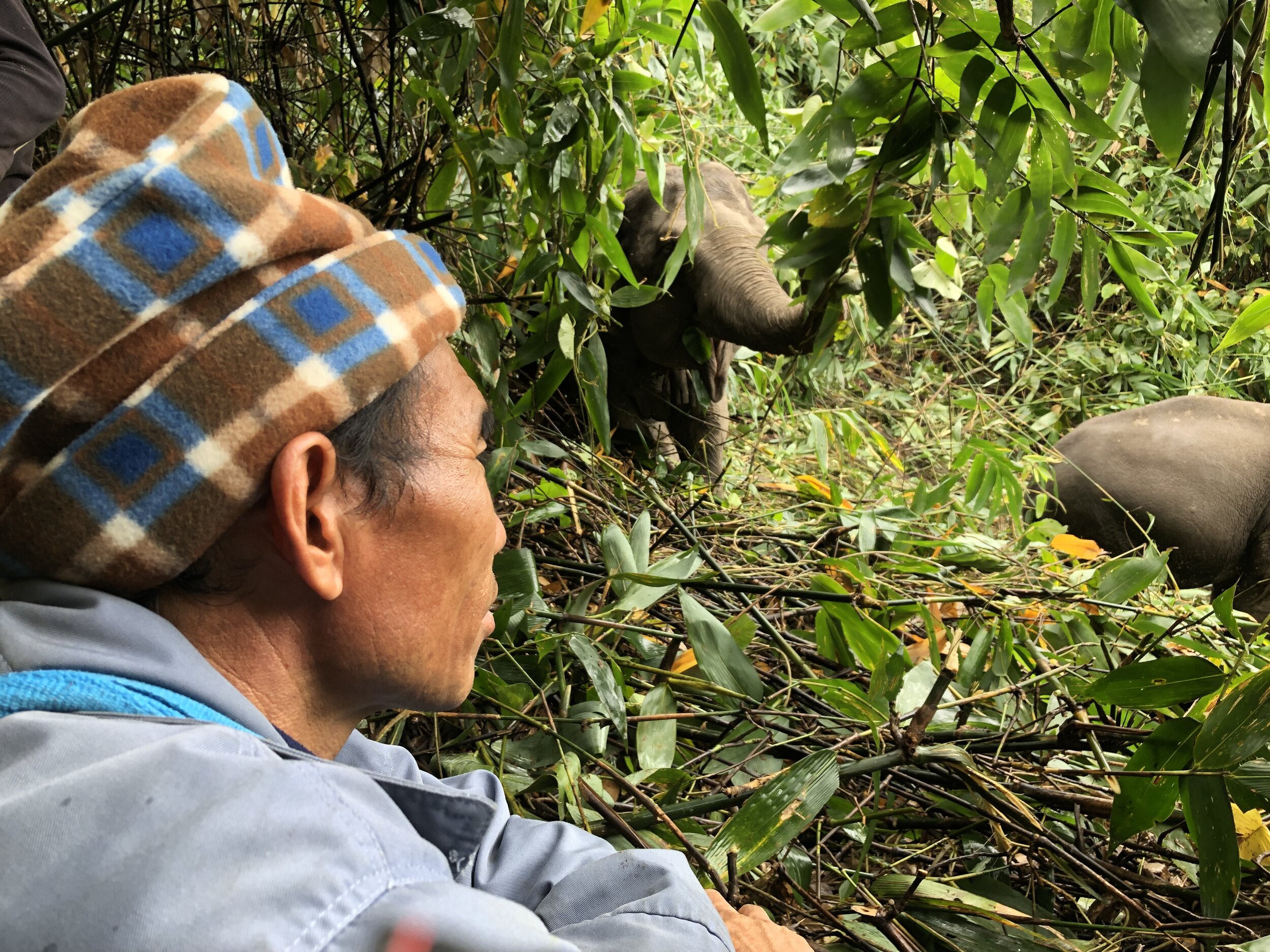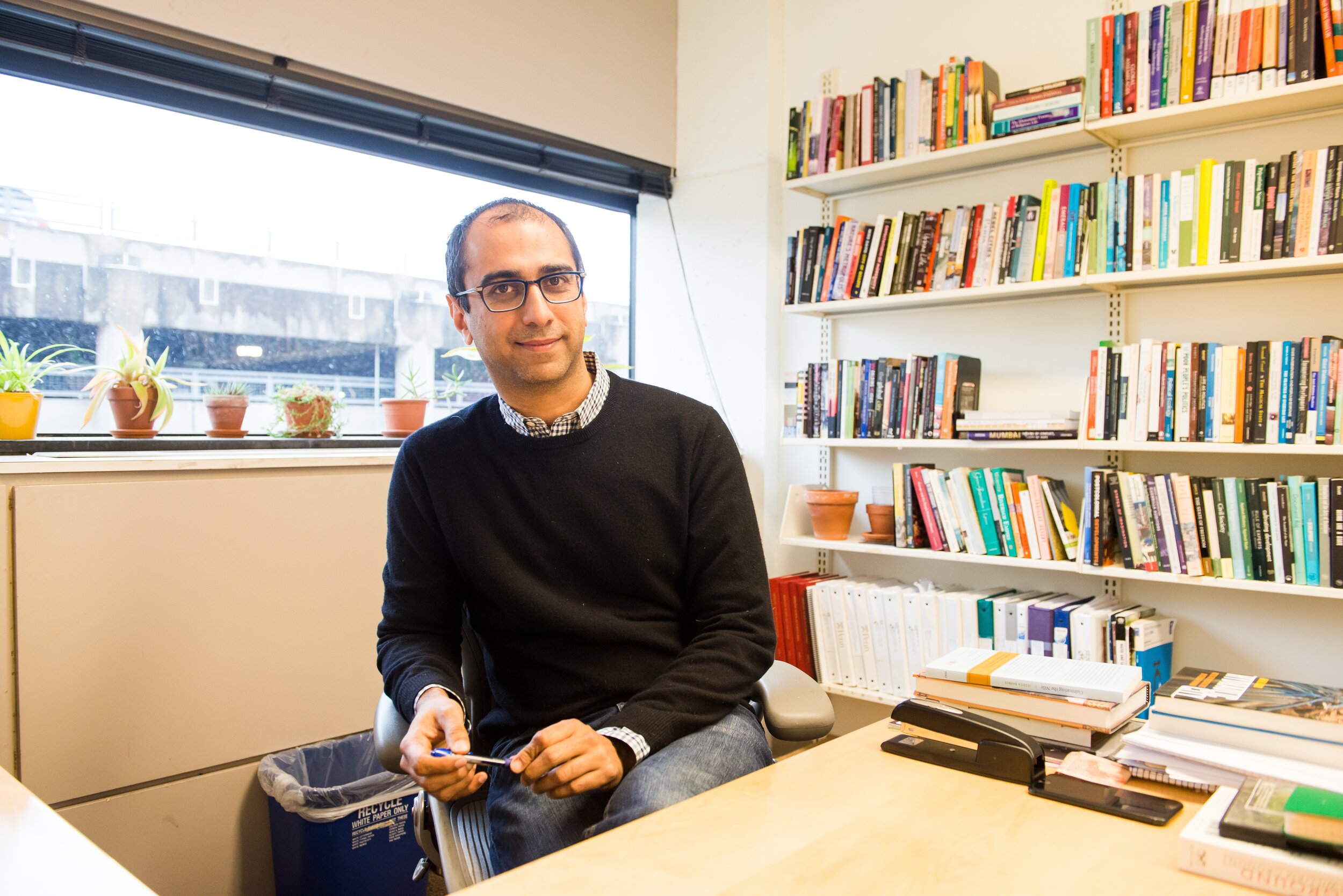
Conference Keynote: Michelle Murphy - What is an Anti-Colonial Relation to Pollution on the Great Lakes?
Join us for Dr. Michelle Murphy’s Keynote address. Moderated by Pablo Aguilera Del Castillo and Raka Sen.

Conference Panel: Ethnography and Environmental Futures
Ethnography is perhaps best recognized as a method of “thick description”, which renders in rich details the lives of others. In recent policy discourses it is deployed a technique of mining subjective experiences to partially explain social realities. But this work of description, which is represented as a straightforward empiricism, has often led ethnographers into promising and troubling new territories of imagination. This panel focuses on ethnography as a resource for speculation and re-invention, for imagining futures, by juxtaposing stories, practices and models of place-making from diverse contexts. The presentations build on different practices of fieldworking, recording, and writing to foreground emergent relations, shared dreams, and projects of co-creation in response to the profound uncertainties being generated by climate change.
Keywords: futures, emergent relations, humanity-yet-to-come, storytelling, speculative/imaginative writing.

Conference Panel: Cultivating More than Human Places: Practices of Belonging & Exclusion
This panel attends to practices of placing and ordering more-than-human beings across a diverse set of more-than-human ecologies that are differently situated within complicated histories of settler colonialism, violence, and captivity. These presentations engage analytically across scales of granularity including the intimate pruning practices of cultivators of olive trees in Italy, the relations among humans and individual elephants in Northern Thailand and possibilities for plants to serve as allies in struggles for Tuscarora sovereignty in North Carolina. Panelists interrogate institutionalized practices of delineating space and ascribing values to groupings like the Sage Grouse population in the western Great Basin of the US, Burmese Pythons in the Florida Everglades, and captive domestic chickens raised on an organic farm in New York. In noticing both familiar and emergent practices that cultivate belonging and exclusion panelists interrogate the production of environmental and ethnographic knowledge and reflect on some of the potentials for a capacious, more-than-human ethnographic practice.
Keywords: more-than-human ethnography, contaminated ecologies, indigenous ontologies, captivity, wildlife conservation, companion species, care, ethics.

Conference Panel: ‘Patchy’ Places and Ecologies of Capitalism
How do we grapple with ‘placing’ beyond frameworks of cataclysm in industrial settings? What power dynamics might we unearth within liberal discourses of nature, even as we remain aware of the complicity of anthropogenic extraction? This panel analyzes ‘patchy’ zones of nature and capital in their messes and promises. In Baku’s oilfields and Ennore’s industrial ecologies, in Oregon’s experimental forests and Brazil’s sugar plantations, with plant phenologists in South Korea and Brazilian national publics around mosquitos, the presentations interrogate national imaginaries and narratives of ruin, nature, progress, and the future. By analyzing these timespaces of extraction and their human, chemical, vegetal and microbial politics, the presentations unsettle our normative environmental discourses and push us to imagine new vocabularies of placing in and through their human and more-than-human relations.
Keywords: Extraction forests, mining, biofuels, oilfields, ethnography, health, science, knowledge, climate change, ecology, future.

Conference Panel: Fluid Geographies, Critical Mapping, and Race-Making
This panel analyzes fluid geographies across the US-Mexico border, Guatemala City, Yucatán, the Chacahua-Pastoría Lagoons, the State of Maharastra, and Dominican Republic to examine different forms of engaging with space help connect various experiences of violence with old forms of exclusion and power. These presentations interrogate how new ways of conceptualizing experiences of place and space bring to life different understanding of the political and the social and the natural. In carefully analyzing body maps, aquifer photographs, groundwater cartographies, the architecture of landforms, new body landscapes and contested borders, this panel reflects on the ways in which particular categories of the natural are embedded in the various typologies of difference that continue to structure social life.
Keywords: Waterscapes, Toxicity, Cartography, Race, Geology, Fluidity, Borders

Conference Panel: Extrasensory Ecologies
This panel seeks to challenge the dominant nature-culture nodes in which ecological and anthropological knowledge are produced. The presenters foreground unique practices of critical listening and visual analysis to question and counter the idea that places are ontologically singular and historically unique, reworking conceptualizations of belonging, displacement, visibility, fragmentation and degradation, criminalization and the carceral, and the constitutive relations between land and water.
Keywords: gardens, waterscapes, displacement, reflexive turn, shared ground, belonging, criminalization, multisensory, abolition geographies.

Conference Panel: Multimodal Engagements: Remapping Race, Space, and Social Difference
This panel explores the affordances of multimodal methodologies and visual analysis for reimagining how we engage with the pasts and futures of racialized places. Featuring work from the Caribbean, US South, Central America and Southern Africa, the panel brings together critical race theory, Black geographies and critical Indigenous studies in a conversation between diverse approaches to remapping the relations between space and social difference that emerge amidst coloniality, extractivism, and dispossession. Drawing on photography and filmmaking, cartography and collage, these presentations also sketch new ways of configuring the ethical, political, and intersubjective terrain on which the ethnographic, photographic and cartographic encounter can unfold.
Keywords: racialized geographies, Black geographies, indigenous knowledge, multimodal, dispossession, intersubjective encounter, visual ethics, decoloniality, climate, planning, threat

Conference Panel: Inhabiting Precarious Worlds & Wastelands
How can we understand “placing” in relation to the excesses, toxicities, and undersirables produced by contemporary capitalism? This panel explores the forms of work, human and non-human life, relationships and affects implicated in producing and distributing waste. What are the inequities embedded in waste management systems in Songdo, and Washington DC? What kinds of futures are imagined through technologies of waste sorting in Shanghai? How is life made livable in the climate precarious worlds of Kashmiri farms and Sundarbans? What politics of recognition are implicated in addressing the toxic by-products of a wind farm in West Texas? Ultimately this panel reflects on the ways in which destruction and it’s distribution across bodies, spaces, and time (re)produces place.
Keywords: waste; toxicity; ruination; infrastructures; climate; environment; labor

Conference Panel: Working Lands & Amphibious Ecologies
How do notions and specificities of “place” allow ethnographers to grapple with the entangled relationships between land, labor, and nature? What can be learned about climate change from the changing relationships between laborers and their lands? What complications does ethnographic attention to buffer zones create in our understandings of the anthropocene and its roots? By analyzing spaces that blur the boundaries between land and water, industrial and rural, inhabitable and uninhabitable, this panel dives deeply into what labor relations look like in light of a changing climate. From the Lakshadweep Islands and Brahmaputra River Basin in India, Sundarbans Forest in India and Bangladesh, West Timor in Indonesia, Nayarit in Mexico and Minas Gerais in Brazil, these presentations investigate place and place attachments in order to uncover more about the localized meanings and experiences of climate change in these places.
Keywords: agricultural relations, salinity, buffer zones, environmental racism, & development.

Conference Welcome: Nikhil Anand
Join Professor Nikhil Anand for his opening remarks and welcome to the Conference on Placing.
